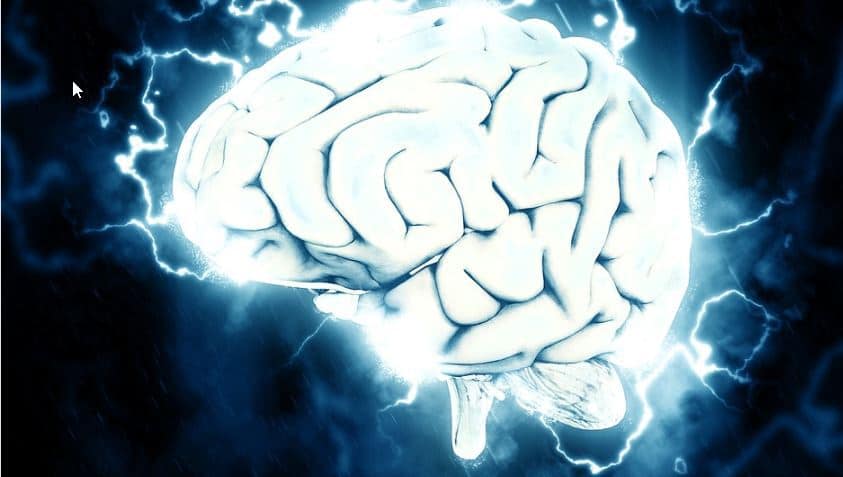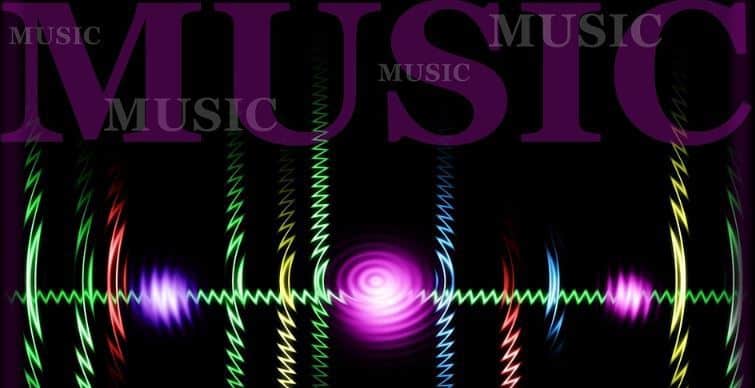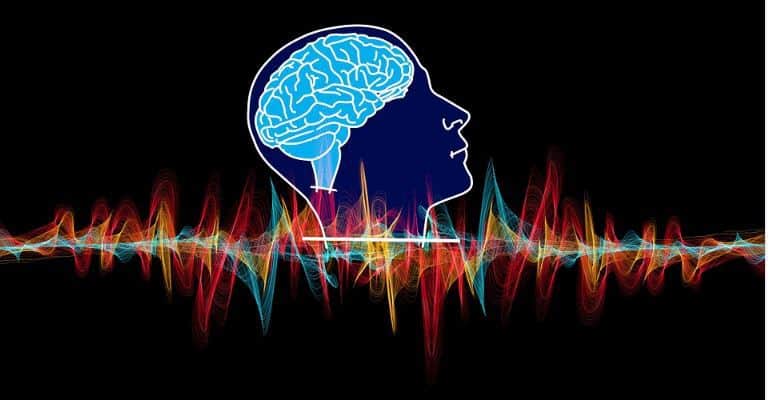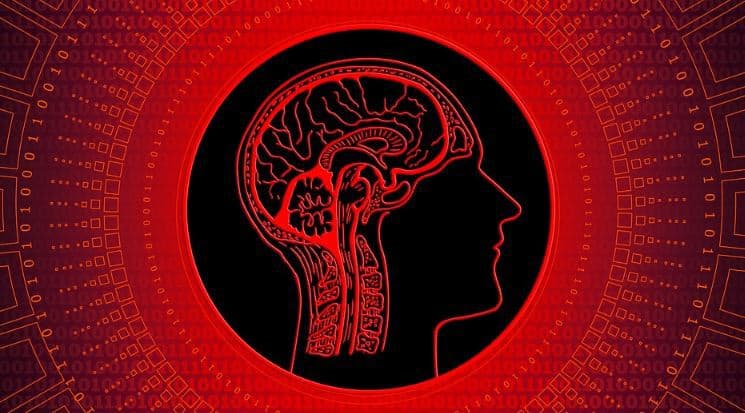In this post, we are going to cover various facts and researches related to music and the brain.
Music can change the world because it has the ability to change the people and is just like pure magic. When you are happy you just enjoy the music but when you are sad your brain starts understanding the lyrics.
Music is divine that speaks where the words can't and it touches everyone's heart.
As you all know we are highly addicted to music and it is a part of our life. Life without music would be blank.
It affects our brain, emotions, mood, behavior, skills, creativity, studies, mental and physical health.
Also, we need to agree that it affects our lives in both positive and negative way.
Here in this post, let's look at some of the ways by which music influences our behavior, mood and also emotions.
Let us look at the research on music and brain

- Pop is the good genre as it makes you to fight depression, encourages you to do more. It is good for your soul.
- Listening to classical music increases visual attention.
- The enhancements to the neural system would continue to grow over the lifespan in case you start listening music daily.
- Musicians will be having the clear transition of syllables and faster neural responses when compared to non musicians.
- As per the journal's report, music has the power to take back your memory to two generations back. Classic genre has the ability to take you back to your teens.
- Increased cortisol levels lead to depression. If you listen to music when you are in stress it reduces the production of cortisol. Along with that meditation also helps to reduce the cortisol levels.
- The listening skills of those who learn music are more compared to non-musicians.
- A study done with 27 participants on dopamine and brain found that when you listen to your favorite music, it induces the release of more dopamine which is a crucial Neurotransmitter.
- Pharmalogical manipulation of dopamine causes both positive and negative musical responses.
- People when listen to music get chills due to the release of dopamine.
- Brain has the ability to reduce the vocals pitch. 20 out of 80 patients participated responded to the brain stimulation making audible vocalizations.
- A study on brain patterns with 14 musicians and 9 non musicians showed that blood flow in the brain can be increased through musical training.
- When you listen to music while learning physical activity it empowers the brain by altering its structure. When they studied this, they found that the volume of the cortex which is responsible for memory,learning, emotion, creativity etc, was highest in professional musicians, intermediate in amateur musicians, and lowest in non-musicians.
- Musicians have better and sensitive brains compared to non musicians. This is because there is 130% more grey matter present in the auditory cortex of the musicians brain which is responsible for hearing.
- The functions and structure of brain varies much in musicians and also their brain responds more quickly to sound.
- Musicians are better when it comes to identifying pitch and sounds. Musicians respond more symmetrically to music.
- Musical training improves and strengthens the brain's functionalities in people with learning and speech difficulties.
- Musicians have super powered memory and auditory skills.
- Musicians have a larger corpus callosum which is mainly responsible for movement and communication.
- Music helps you heal quickly by connecting with your emotions.
- Music may affect oxytocin levels in the body when you listen to your favourite music or when you enjoy live music, which is responsible for increasing the trust and bonding between people.
- Software workers productivity will drastically increase when they work after listening to music.
- When athletes listen to upbeat music before gaming it keeps them away from choking pressure.
- Study made to analyze surgeons' performance found that surgeons when listened to their own choice of music worked more fastly and accurately. It also boosted their speed and accuracy of task performance.
- Music boosts creativity. In one study some participants are allowed to listen classical music and remaining participants were not allowed to listen any type of music. Those listened music completed the tasks very creatively and enthusiastically.
- Musicians have more cognitive flexibility than non musicians.
- When you listen to instrumental music it boosts your productivity while mental performance can be improved by listening to lyrics. Listening music also increases physical performance and makes the repetitive tasks pleasurable.
Benefits of music therapy

- Music acts as a painkiller. When a person is sad listens to his favorite music it triggers the production of opioids, a natural pain reliever. So that they feel very calm and relaxed. The study revealed that classical genre is the most effective music to reduce the pain.
- The sound vibrations therapy on Parkinson's patients does a miracle by improving their walking speed and the physical condition.
- The live music which excites and thrills the body makes the patients recover their quality life.
- As per the different studies made, the people with stroke in the initial stages showed an improvement when listened to music which improved their immune system and reduced their stress. Thus music is proved as a pain killer.
- Comparable to non musicians, musicians have highly enhanced neural coding and faster cABRs(auditory brainstem response to complex sounds) with more precise response timing.
- UniversityHealthNews explored that the patients suffering from dementia and Alzheimer's are able to recollect the autobiographical memories and verbal memories when they are allowed to listen to music.
- Also, dementia patients were able to recognize the emotions when they listen to music.
- Music therapy decreases the depression, anxiety while improving skills, emotions in dementia patients.
- Also, a study revealed that in the people with middle to later stages of Alzheimer disease, singing a familiar song encourages conversion.
- Listening to sad music evokes positive emotions in the people who are suffering from depressions. Music stimulates emotions through specific parts of the brain.
Effect of music on brain waves

The study made to analyze the impact of music on the bioelectrical oscillations of the brain
revealed the following results:
- Indonesian musical study revealed that music prominently increases the alpha activity in the brain and also cognitive processes. Imaging music elicits the posterior alpha activities because imaging has the power to enhance the alpha activity of posterior areas of the brain.
- Long term music therapy on comatose patients did wonders by increasing the amount of higher frequency waves (α + β) and it decreased the amount of lower frequency waves (δ and θ), which resulted in decreasing their quantitative EEG value δ + θ/α + β (1) 8. As the amount of high frequency waves increased, the brain starts its activity.
- Also, the research found that those patients who are suffering from unresponsive wakefulness when fed with music therapy, it reduced the theta/beta ratio and theta power, while shifting the dominant rhythm into the alpha band thus recovering brain integrity.
- It is strongly agreed that music activates the brain in unconsciousness people.
- In people suffering from major depression, schizophrenia, or anxiety symptoms, music therapy increases alpha and reduces beta activity over time, thus reduces their anxiety levels and makes them come out of their illness.
- The major advantage of music therapy with depression patients is – it increases the left frontotemporal alpha power, as well as in the left frontocentral and the right temporoparietal theta power. This process reduces their depression and helps them lead a happy life.
- Music therapy for patients with schizophrenia increased alpha activity in prefrontal, frontal, temporal, and parietal lobes and brought them back to the original state.
How does music affects brain, emotions, and mood?

Do you know music helps people in remembering things better?
Yes, it is!
- The 2007 study done by Stanford University revealed this truth – music always keeps engaging the parts of the brain associated with memory and hence it stimulates those nerves associated with it. The concentration levels always respond energetically with music.
- Listening to favorite music always increases the focus, keeps your mind calm. Listening to music while studying is highly beneficial as it makes your brain more attentive and makes you more focused, reduces retention, and maximizes the spirit of learning.
- Listening Hip Hop/Rap music while studying is dangerous, instead go with instrumental, classic, cinematic scores, binaural beats. Listening to these types of music maximizes your cognitive output, increases concentration, and keeps your brain focused.
- Listening to background music or to rain, auditory music, pleasant music improves memory and increases the heart rate.
- Touching music results in deeper memory encoding and modifies the visual perception of faces by combining both the auditory and facial properties together.
- Listening to music also enhances the positive thoughts by influencing arousal and mood.
- Listening to music decreases agitation, aggression, and many other negative behaviors. One to two months of music therapy on dementia patients showed improved emotional state, reduced behavioral problems, and also decreased caregiver distress.
Benefits of listening to music
The study revealed that listening to the classical genre is the best way to improve memory(long term memory) and concentration. It establishes an emotional connection and induces sensory experience.
How music affects children's academic development?
Results indicated that people with more musical experience learned better with neutral music but tested better with pleasurable music.
ECG recordings in a study revealed the fact that the ability to track the pitch of a sound called pitch contour is very advanced in musicians as compared to non-musicians.
The study also showed a mixed demonstration on the hypothesis "music training is related to enhancements of mathematical skills" – the first-grade musicians with visual art skills who had a training of over 7 months showed amazing expertise in mathematics.
However, the fact still needs evaluation.
Musical training in kids accelerates the brain development at a faster rate with faster development of encoding of sound thus enhancing IQ and learning skills.
These kids will be very attentive, have stronger responses. This also helps in their language acquisition.
Studies made on music with different age groups

- Effect on music on Infants: A study made on a 4 week infant to examine its behavior of tongue protrusion in music and silence revealed that the infants protruded their tongues more actively when music was played compared to in silence.
The babies protruded their tongues even in the absence of their parents. So the study concluded that it was not the mimic the baby does rather it is connected with music.
2. Preschool-aged children: The study analysed the children's behavior in 2 computerized training programs, one for visual arts and another for music.
After training for 20 days, 90% of the students in the music group showed higher verbal intelligence. These improvements happened because of the positive impact of music on the brain's plasticity.
3 . Kindergarten-aged children: According to this study, when these children are asked to ear different types of music they performed well on cognitive tasks and also they behaved very creatively.
This happened due to the positive impact of classical music on children's mind. This also enhanced their technical abilities as well.
4. Primary school children: Effect of background music study on primary school children showed that the calming music impacted on children made them perform better on arithmetic and memory tasks.
But when disgusting music was played they reacted very aggressively and performed worst on both tasks. Thus this study concluded that the music changed the mood and reduced the stress by correlating with arousal and mood.
Effect of background music on learning:

A study made to understand the effect of background music on pupils with age group of 12+ reported the following results:
- The pupils with an age of 12+ who are frustrated with educational needs and are unable to perform the manual tasks effectively were subjected to audio tapes of Mozart orchestral compositions.
- Their blood pressure, body temperature, and pulse rate were measured and the audiotapes were then adulterated in order to determine which stimulus had a positive effect on their physiology and metabolism.
- After adulteration of music the improvements in coordination, less stress and frustrations were observed. This is because Mozartian qualities stimulated the production of a chemical, endorphin in the limbic system of the brain which is responsible for physiological changes.
Negatives of music

- In a study made by Scripps Howard News Service reported that rock music increases the adrenalin levels in humans and it makes the brain structure associated with memory and learning abnormal.
- Despite its downsides music acts as a mood changer for teenagers.
- According to university of Melbourne young people with depression would love listening to heavy music. They will isolate themselves from the outside world by blocking out themselves listening to the same music again and again. If they overdo it, they may end up committing suicide.
- Researches also showed that listening to violent lyrics increases the aggressiveness but listening to piano keeps you calm.
- Listening to sad music increases anxiety and neurosis.
Also read:
- Most Awful Recording Studio Statistics That Fears Audio Producers
- 13 Music Genre Statistics That Every Music Lover Should Know
- 15 Horrifying Music Piracy Statistics and Facts You Need to Know
- 6 Best Music Genre Finder Websites to Check Genres of any Song
Conclusion:
This is all about the facts and statistics related to music and the brain.
Perhaps the parents get worried if their children spend a lot time listening music. Now I think they have understood the impact of music on them and also its power.
Let your children learn music as it enhances their skills.
As the proverb says "If taken in excess, even divine nectar is also poisonous", it also has limits.
I hope you found this post helpful.

